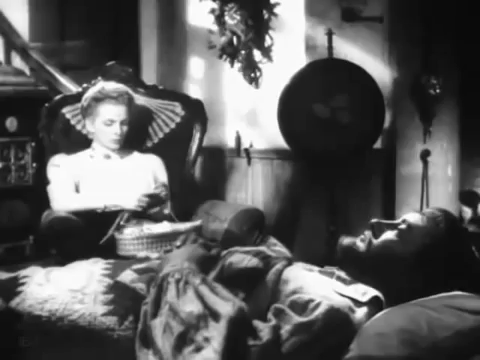|
Genres, Themes, Actors, and Directors:
- Artists
- George Sanders Films
- Herbert Marshall Films
- Marital Problems
- Midlife Crisis
Review:
Albert Lewin’s adaptation of W. Somerset Maugham’s 1919 novel — loosely based on an outline of Paul Gauguin’s life — afforded Sanders his second-most-hated cinematic character after Addison DeWitt in All About Eve (1950), and remains an insufferably misogynistic apologia for Artistic Male Geniuses as Permissible Bastards. There is very little to commend in this tale about an admittedly revolting man who nonetheless is lionized by the end (final title card notwithstanding). Perhaps the most egregious of many exchanges occur once Strickland is on Tahiti, where he deigns to consider marrying a beautiful and adoring 15-year-old girl with flowing hair and limited English. The local matchmaker, Tiare (Bates, having fun in a florid role), explains to the ever-inquisitive Marshall (as Geoffrey Wolfe):
Tiare: I was only 15 when my father found out that I had a sweetheart. He was 3rd mate on the Tropic Bird. Oh, he was a good looking boy.
Wolfe: What did your father do?
Tiare: He thrashed me within an inch of a life, then made me marry Captain Johnson!
Wolfe: Were you very unhappy?
Tiare: Oh, I didn’t mind — he was handsome, too! He used to beat me regularly — I was black and blue all over for days at a time. HE was a man! I cried when he died.
And shortly after this:
Strickland [agreeing to marry Ata]: I shall beat you, you know!
Ata (Verdugo) [lovingly and meekly]: How else shall I know you love me?
Meanwhile, the narrative crutch of having Marshall-as-Maugham (or in this case, another random novelist) telling the story of a seeker-in-exile feels forced and stale, especially after having just watched The Razor’s Edge (though to be fair, this Maugham adaptation was released first). Feel free to skip this one unless you happen to be a particular fan of Maugham’s work.
Redeeming Qualities and Moments:
- Atmospheric cinematography

Must See?
Oh heavens, no.
Links:
|


One thought on “Moon and Sixpence, The (1942)”
First viewing – and in complete agreement with the assessment given; skip it.
A screenwriter with about 20 credits and a director with 6, this was Lewin’s (generally static) directing debut. He would go on to make a few interesting films but this one is as tiresome and exasperating as its subject (Gauguin). (As well… Geray’s character – sheesh, pathetic!)
20 or 30 minutes in, chances are you’ll want to give up – or, like me, you’ll continue watching while aching for the thing to be over.